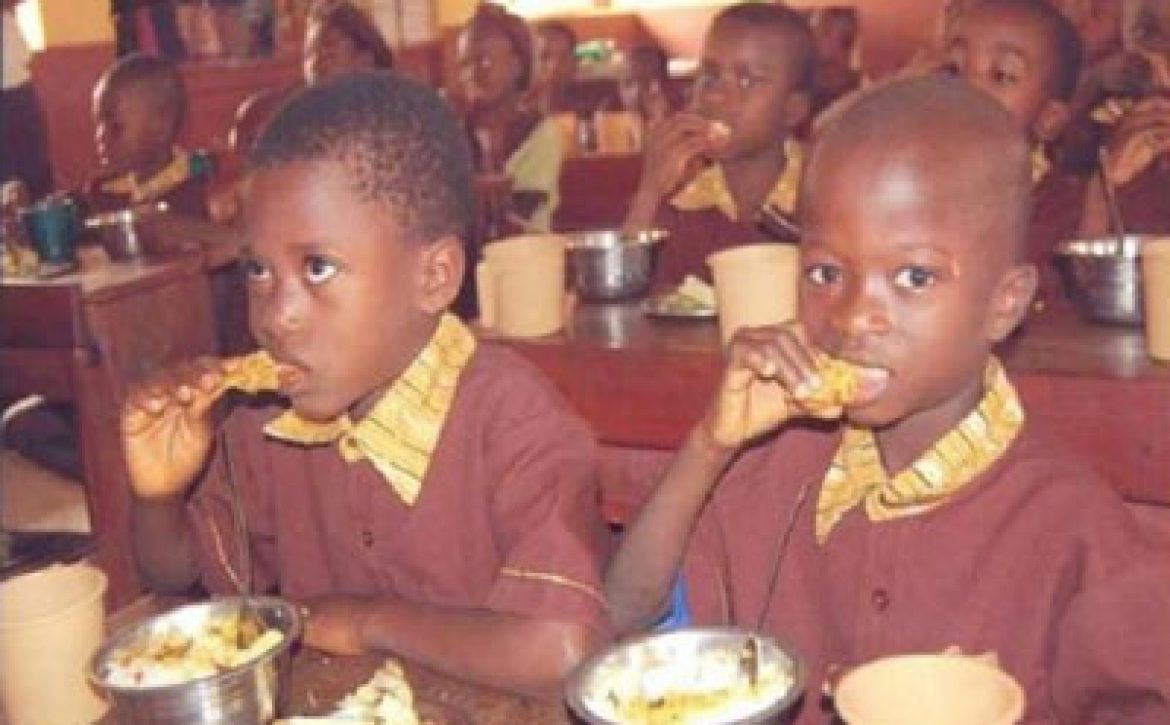The free feeding and health programmes introduced by the Osun State government to encourage school enrolment, attendance and rate as well as enhance pupils’ health has not only become a model for the federal and state governments, but also a platform for agricultural development and food production. SINA FADARE reports.

At the onset, the primary objectives of the free school feeding programme introduced by the Osun State government was aimed at increasing school enrolment, encourage attendance as well as enhance pupils’ health in all public primary schools.
Farmers appear to be the major beneficiaries of the programme as they embarked on massive food production as well as having ready market for their produce.
The programme has also enhanced the income of local farmers; thus reducing poverty level as all goods are sourced locally.
On weekly basis, no fewer than 40 herds of cattle; 10,000 crates of eggs; 20,000 chickens, over 400 metric tons of fish are needed to feed the pupils.
About 500 unemployed youths were trained and empowered for mass fish production under Osun Fisheries Out-Growers Production Scheme (OFOPS).
The scheme supplies well over 400 metric tons of fish regularly for the school feeding while cultivation of cocoyam through a cocoyam rebirth programme was also encouraged.
Over 1,000 cocoyam farmers (selected across the nine federal constituencies) were trained and assisted to mass cultivate pink cocoyam for inclusion in the school feeding menu.
Today, the number has risen to over 15,000, as more women and young adults have taken to farming; cultivating cocoyam, vegetables, tomatoes and melon.The programme, which began in 2006, has become a success story and indeed a reference model for many states and countries as pupils from kindergarten to primary four in public primary schools are fed daily with balanced foods such as fish, meat, vegetables and fruits that are rich in protein.
The pupils are de-wormed twice a year. A comprehensive menu which, among other things, would help to develop the brain capacities of the growing children in their formative years was drawn up by stakeholders in the education sector.
The team argued that a well-fed pupil is likely to be healthy and more attentive in class than those on empty stomach.
Addressing delegates from all the states of the federation, including the Federal Capital Territory (FCT) on the school feeding programme, Osun State Deputy Governor, who doubles as the Commissioner for Education under whose supervision the school feeding is carried out, Mrs. Grace Titilayo Laoye-Tomori noted that the programme began in 2006 as one of the 13 pilot states (Federal Capital Territory, Abuja, inclusive).
She explained that the Aregbesola-led administration extended the beneficiaries of the school feeding programme in 2012 to primary four pupils and rechristened it Osun School Feeding and Health Programme (O-Meals).
Mrs. Laoye-Tomori maintained that the free meals in public schools has led to sharp increase in enrolment from 155,318 to 194,253 after four weeks of its implementation, saying that currently over 252,000 pupils are being fed while they remain in school until closing time.
She said: “According to the Federal Bureau of Statistics Report of 2013, Osun State has the highest primary school enrolment rate in the country and the lowest number of children of school age being out of school.”
Mrs. Laoye-Tomori said that through the programme, the state was able to capture the actual figures of school pupils being fed under the programme which costs the government the sum of N18 million a week.She said a total of 3,007 food vendors were engaged, trained, kitted with uniforms and made to undergo medical screening.
The vendors, according to her, were given loans to procure cooking utensils and organised into 124 functional co-operative investment and credit societies for effective administrative purposes.
Mrs. Laoye-Tomori noted that the success of the programme has attracted compliments and accolades from both local and international forums.
In 2014, the British Parliament invited the Governor Rauf Aregbesola to talk on the implementation of the school feeding programme for which the Parliament praised him.
She explained that commendation also turned in from government of South Africa which sponsored her visit to the country.
While praising the delegates for the visit to have a requisite insight into the dynamics of the school feeding programme, Mrs. Laoye-Tomori advised them to sit back and fashion out what will work for their respective states and people.


